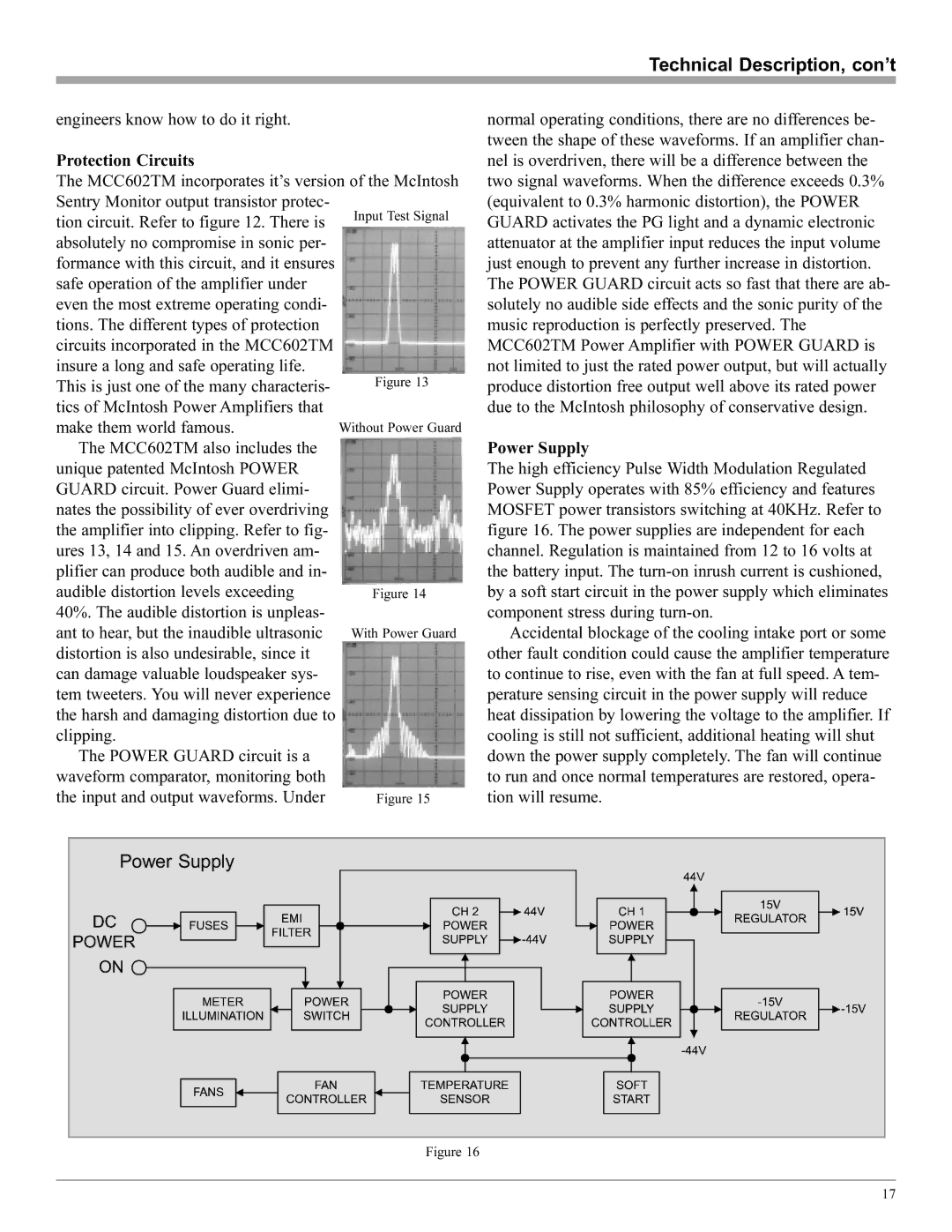
Technical Description, con’t
engineers know how to do it right.
Protection Circuits
The MCC602TM incorporates it’s version of the McIntosh Sentry Monitor output transistor protec-
tion circuit. Refer to figure 12. There is absolutely no compromise in sonic per- formance with this circuit, and it ensures safe operation of the amplifier under even the most extreme operating condi- tions. The different types of protection circuits incorporated in the MCC602TM insure a long and safe operating life. This is just one of the many characteris- tics of McIntosh Power Amplifiers that make them world famous.
The MCC602TM also includes the unique patented McIntosh POWER GUARD circuit. Power Guard elimi- nates the possibility of ever overdriving the amplifier into clipping. Refer to fig- ures 13, 14 and 15. An overdriven am- plifier can produce both audible and in- audible distortion levels exceeding
40%. The audible distortion is unpleas- ant to hear, but the inaudible ultrasonic distortion is also undesirable, since it can damage valuable loudspeaker sys- tem tweeters. You will never experience the harsh and damaging distortion due to clipping.
The POWER GUARD circuit is a waveform comparator, monitoring both the input and output waveforms. Under
normal operating conditions, there are no differences be- tween the shape of these waveforms. If an amplifier chan- nel is overdriven, there will be a difference between the two signal waveforms. When the difference exceeds 0.3% (equivalent to 0.3% harmonic distortion), the POWER GUARD activates the PG light and a dynamic electronic attenuator at the amplifier input reduces the input volume just enough to prevent any further increase in distortion. The POWER GUARD circuit acts so fast that there are ab- solutely no audible side effects and the sonic purity of the music reproduction is perfectly preserved. The MCC602TM Power Amplifier with POWER GUARD is not limited to just the rated power output, but will actually produce distortion free output well above its rated power due to the McIntosh philosophy of conservative design.
Power Supply
The high efficiency Pulse Width Modulation Regulated Power Supply operates with 85% efficiency and features MOSFET power transistors switching at 40KHz. Refer to figure 16. The power supplies are independent for each channel. Regulation is maintained from 12 to 16 volts at the battery input. The
Accidental blockage of the cooling intake port or some other fault condition could cause the amplifier temperature to continue to rise, even with the fan at full speed. A tem- perature sensing circuit in the power supply will reduce heat dissipation by lowering the voltage to the amplifier. If cooling is still not sufficient, additional heating will shut down the power supply completely. The fan will continue to run and once normal temperatures are restored, opera- tion will resume.
Power Supply |
Figure 16
17
